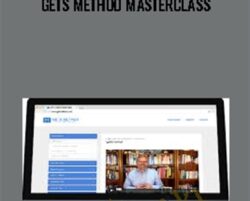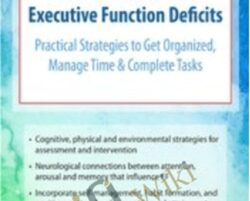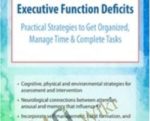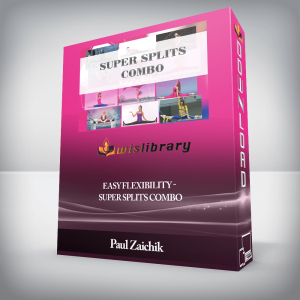In this experiential program, you will learn evidence-based cognitive, physical and environmental strategies to use in the assessment and intervention of executive function (EF) deficits in children and adolescents.You will learn effective assessment processes, activity analysis, interventions and coaching activities that empower positive behavior change in the kids you work with. These innovative interventions will help your clients successfully negotiate the daily tasks of life such as organization, time management, initiation and completion of tasks – without heavy reliance on others.You will learn interventions that increase self-awareness, self-monitoring and problem-solving skills and teach them how to be proactive and a socially and academically successful student. The often-forgotten influence of sleep will also be prioritized as a means to success, along with routine-building strategies, such as goal attainment scaling.In this recording, you’ll learn how to:Use a model of inhibition, working memory and cognitive shifting as a framework for working with EFMaximize memory formation through sensory processing and sleep strategiesAssess functional EF needs effectively to establish concrete interventionsEstablish skill-building interventions to promote organization, time management and task completionDesign effective accommodations to enhance generalization of skills to navigate daily tasksFocusing on a top-down, client-centered approach and incorporating both remediative and adaptive interventions ensures that you can hit the ground running with your clients immediately. Your competence will translate to their confidence!Utilize the developmental patterns for the three foundational components of executive function (EF) to create lens for assessment and intervention.Develop mindfulness, physical activity, positive reinforcement and environmental interventions and assign as homework, classwork and activities of daily living (ADLs) for children and adolescents.Examine the neurological connections between attention, arousal, and memory that affect executive function performance in ADLs, academics and social participation.Establish the relationship between postural control, attention, vision and executive functions as it relates to assessment and treatment planning.Correlate the influence of sleep on executive function performance and the consequences of arousal challenges with sleep onset difficulties.Utilize goal attainment scaling as an intervention to improve client’s self-management skills, habit formation and routinization.Inhibition, Working Memory and Cognitive Shifting: The Working Model of Executive FunctionDevelopmental patterns to distinguish assessment and intervention processesDysfunction patterns in ADHD, ASD, Sensory Processing Disorder, learning disabilities, brain injuryConsequences of impulsivity, working memory difficulties and cognitive rigidityNeuro Connections: From Sensory Processing to Memory Formation and SleepSensory processing as basis for learningArousal states and “window of opportunity for learning”Self-regulation: sensory, cognition, emotional regulation, impulse controlPostural control and relationship to attentionVision and learning: consequences for attention, EFSleep and influence on learning, self-regulation, memory consolidation and attentionAssessment: From Observations to Standardized ToolsObservational strategies to identify EF deficitsAssessment tools for inhibition, working memory and shiftingSemi-structured interviews and self-assessment toolsAssessment tools for global EF measurements and sleepIdentification of sensory arousal patternsCOGNITIVE, PHYSICAL AND ENVIRONMENTAL INTERVENTIONS Skill-Building Strategies to Get Organized, Manage Time & Complete TasksMartial arts, physical activity, mindfulness and yoga incorporationsSensory and cognitive-based strategies for self-regulation and arousal: “POW! Battery System”Time management remediation processes: “Time Detective”Internal voice to promote metacognition, planning, and attention: “Play by Play”Sustained, alternating attention and memory activities: “The Lyrics Game”Motor learning principles to promote automaticityMnemonics, chunking and storytelling: “What the EF?!”Video case examples: Implementing skill building strategiesAdaptations to Enhance Generalization of Skills to Navigate Daily TasksAdaptive seating, visual clutter considerations, vision boardsPositive reinforcement and creation of systems: organizational habitsPlan, organize, work, finish tasks: “POW! Strategy”Self-monitoring goals to establish routines: goal attainment scalingSleep hygiene protocols as part of the EF continuum504 and IEP accommodation design strategiesVideo case examples: implementing adaptation strategiesCase Study: 9 year old male with ADHD and sensory processing disorderTag:Turning “I Can’t” into “I Can!” for Kids with Executive Function Deficits: Practical Strategies to Get Organized, Manage Time & Complete Tasks – Nicole R. Quint Review. Turning “I Can’t” into “I Can!” for Kids with Executive Function Deficits: Practical Strategies to Get Organized, Manage Time & Complete Tasks – Nicole R. Quint download. Turning “I Can’t” into “I Can!” for Kids with Executive Function Deficits: Practical Strategies to Get Organized, Manage Time & Complete Tasks – Nicole R. Quint discount.
 GETS Method Masterclass – Mike Tobias
₹19,920.00
GETS Method Masterclass – Mike Tobias
₹19,920.00
 Instant Cash With Judgment Liens – Mike Warren
₹4,150.00
Instant Cash With Judgment Liens – Mike Warren
₹4,150.00
Turning “I Can’t” into “I Can!” for Kids with Executive Function Deficits: Practical Strategies to Get Organized, Manage Time & Complete Tasks – Nicole R. Quint
₹12,450.00






